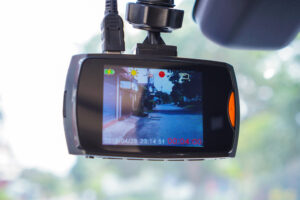By Eric Peters
In East Germany during the Cold War, the secret police—known as the Stasi—relied on neighbors, coworkers, and even family members to report on each other. The result was a society where people assumed they were always being watched.
Today, a similar kind of mass surveillance is emerging on America’s roads—not through human informants, but through technology.
The Growth of ALPR Technology
Automated License Plate Readers (ALPRs) are camera systems used by law enforcement to scan and record the license plates of passing vehicles. These scans are cross-referenced with government databases to identify expired registrations, lapsed insurance, or outstanding fines. In many jurisdictions, tickets can be issued automatically without an officer ever pulling a driver over.
ALPRs don’t just target offenders. They also create detailed records of the movements of millions of drivers who haven’t broken any law. Time, date, and location data can be logged automatically, painting a precise picture of where people travel.
The Flock Safety Model
One company, Flock Safety, is looking to expand this reach by combining ALPR technology with private dashcams. Partnering with Nexar, which already sells AI-powered dashcams, the idea is to create a “crowdsourced” surveillance web. Each dashcam could record license plates, faces, and movements, feeding data into larger law enforcement networks.
This could dramatically expand government visibility into everyday driving, particularly in rural areas where traditional ALPR infrastructure is sparse. With enough dashcams on the road, nearly every trip could be recorded and logged somewhere.
Why This Raises Concerns
Some might argue that law-abiding drivers have nothing to fear. But the reality is that nearly everyone occasionally exceeds the speed limit, rolls through a stop sign, or misses a vehicle inspection deadline. Should those everyday actions be automatically flagged and recorded by technology embedded in private vehicles?
Beyond enforcement, the issue is one of privacy and freedom. Systems like these create the conditions for constant monitoring. Drivers may come to assume that their movements are always being tracked, eroding trust in both public institutions and fellow motorists.
Many strongly oppose automated enforcement and mass data collection on drivers. ALPRs, especially when expanded through private dashcams, risk turning every vehicle into a surveillance node.
Genuine safety comes from improving road design, setting rational speed limits, and ensuring fair enforcement, not by monitoring motorists at every turn. Protecting privacy on the road is as important as protecting safety.
Editorial Disclaimer
The views and opinions expressed in this blog post are those of the author and do not necessarily reflect the official policy or position of the National Motorists Association. We believe in fostering open dialogue and welcome diverse perspectives on issues affecting motorists. If you would like to submit a response or opposing viewpoint, we encourage you to contribute. Please email us at greg@motorists.org for submission guidelines.







